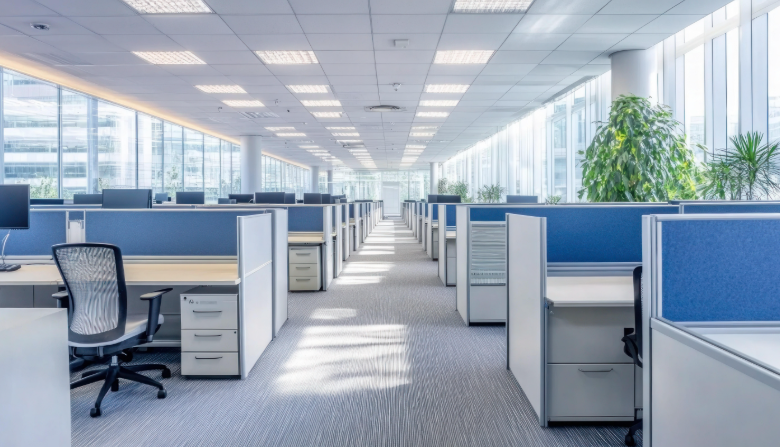How Cubicles Create Structure and Privacy in Open Spaces

While open office layouts have gained significant popularity among companies aiming to promote collaboration and communication among employees, these designs can lead to challenges regarding privacy, focus, and personal space. This is where cubicles come in to offer a valuable solution that balances the benefits of open spaces with the need for structure and privacy. Here’s a closer look at how high-quality cubicles from manufacturers such as Gen2 create an effective and comfortable working environment in open spaces.
Define Personal Space
Cubicles provide a clear definition of personal space within the larger open office layout. Each cubicle acts as a mini-office, allowing employees to have their own designated area where they can work without constant interruptions. This spatial definition is crucial in preventing the feeling of being overwhelmed, which can often accompany open environments. Employees can personalize their cubicles with photos, plants, and decorations, making their workspace feel more comfortable and inviting. This sense of ownership over their space can enhance job satisfaction and productivity.
It’s About Enhancing Focus and Concentration
Noise from conversations, phone calls, and other activities can disrupt an employee’s ability to concentrate. Cubicles help mitigate this issue by providing physical barriers that absorb sound and reduce distractions. The walls of cubicles can help create a quieter environment, allowing employees to focus on their tasks without being constantly interrupted. This setup is particularly beneficial for tasks requiring deep concentration, as it provides a semblance of isolation without completely closing off the individual from the team.
Promote Privacy
Privacy in the workplace is essential for maintaining confidentiality and fostering a sense of security among employees. In open office environments, sensitive conversations can easily be overheard, leading to discomfort and potential breaches of confidentiality. Cubicles offer a solution by providing a degree of visual and auditory privacy. Employees can conduct phone calls or private meetings without fear of being overheard, helping to create a more secure and trusting atmosphere. This privacy is especially important in roles involving confidential information, such as human resources or finance.
See also: Smart Home Automation: Making Life Easier and Safer
Facilitate Collaboration While Respecting Boundaries
While cubicles provide privacy, they do not eliminate the benefits of collaboration inherent in open office designs. The layout of cubicles allows for easy communication among team members while still maintaining personal space. Employees can easily lean over the walls to ask quick questions or share ideas, fostering a collaborative spirit without the need for formal meetings. This balance between collaboration and privacy is crucial for maintaining productivity while encouraging teamwork.
Reduce Stress and Anxiety
The open office environment can sometimes lead to stress and anxiety among employees, particularly for introverts or people who are sensitive to noise. Cubicles can help alleviate these feelings by creating a more controlled environment. By having defined boundaries, employees may feel more secure and less exposed to the hustle and bustle of the office. This reduction in anxiety can lead to improved mental health and overall job satisfaction, which are critical for long-term employee retention.
Encourage Productivity
With the combination of defined personal space, reduced distractions, and enhanced privacy, cubicles can significantly boost employee productivity. The ability to personalize their space and create a setup that works for them can further enhance efficiency. Additionally, the structure provided by cubicles can help employees manage their time more effectively, as they are less likely to be interrupted by colleagues.
As we have seen, cubicles play a vital role in creating structure and privacy within open office spaces. By defining personal space, enhancing focus, promoting privacy, and facilitating collaboration, they strike a balance that benefits both employees and organizations. Their ability to reduce stress and anxiety while encouraging productivity makes them an essential component of a well-designed office environment.





